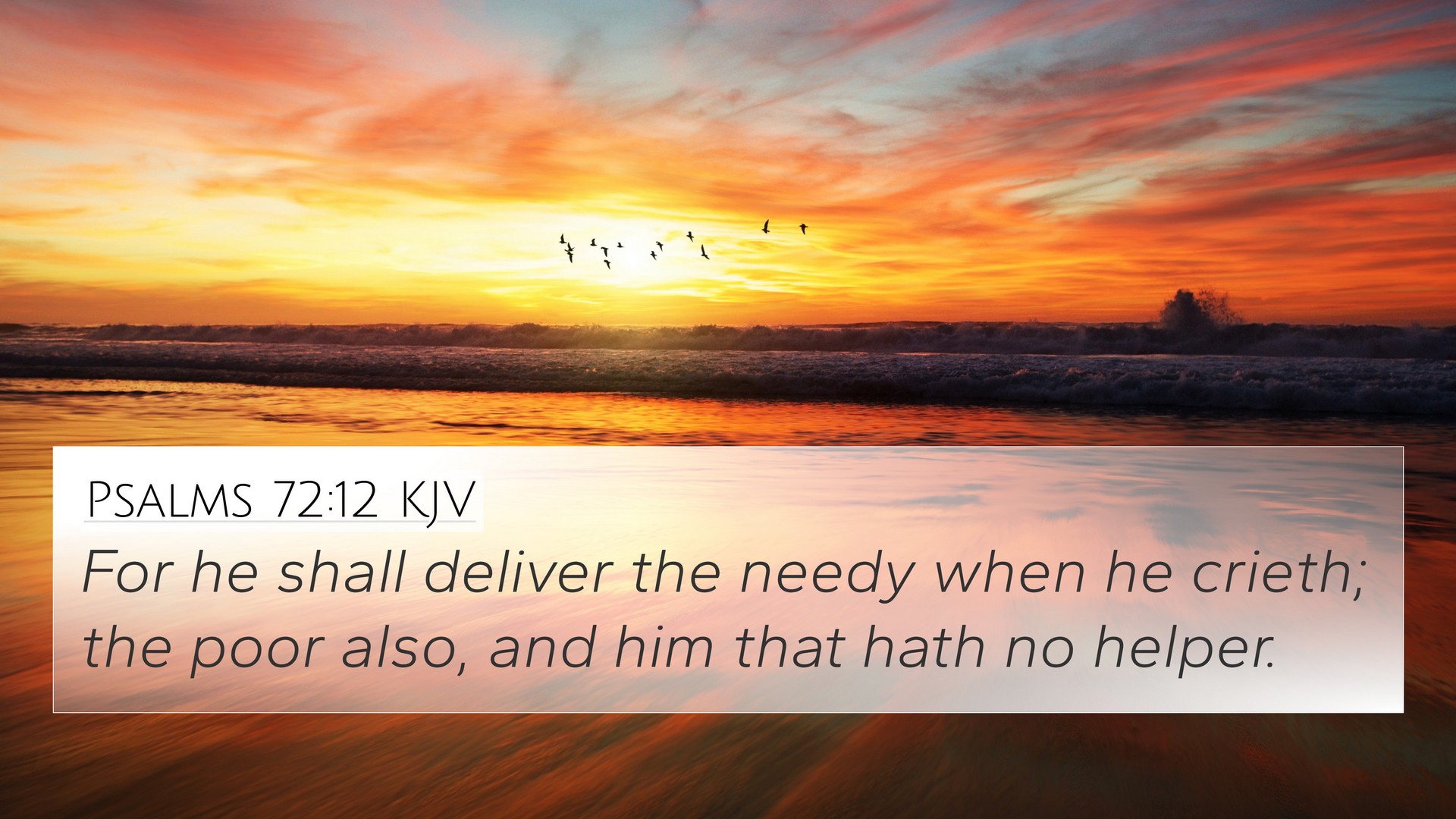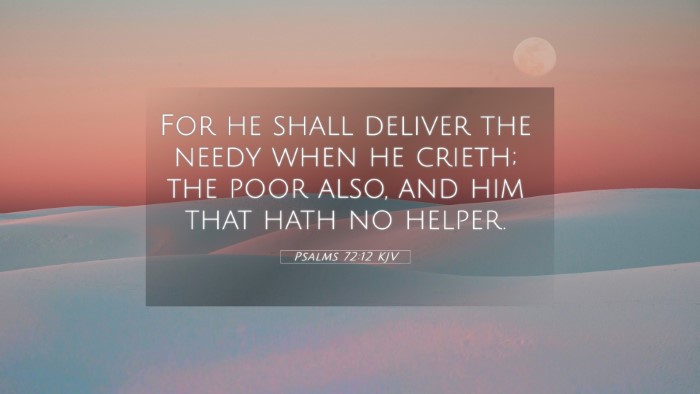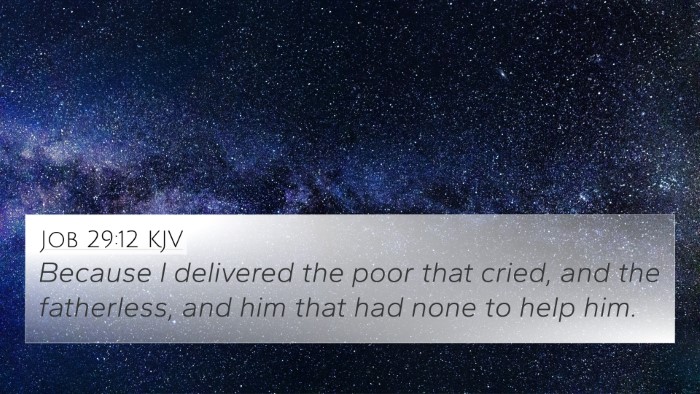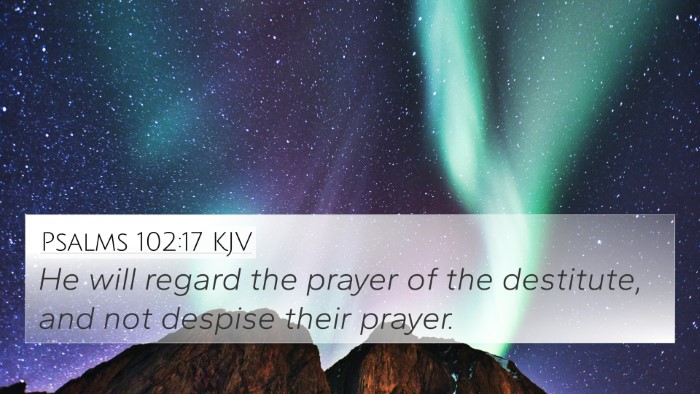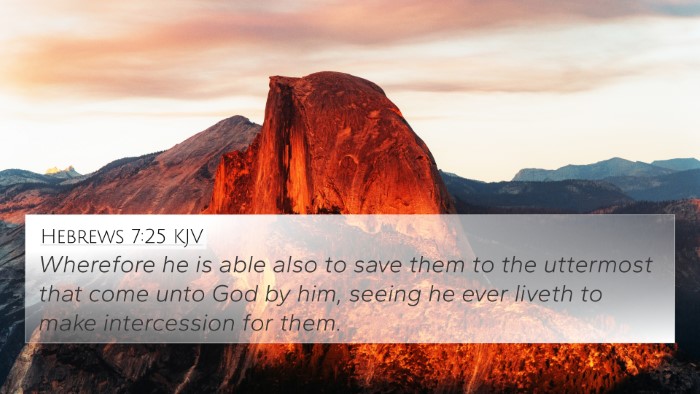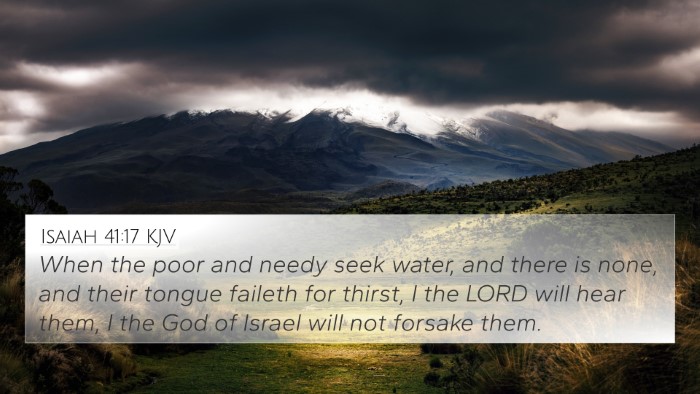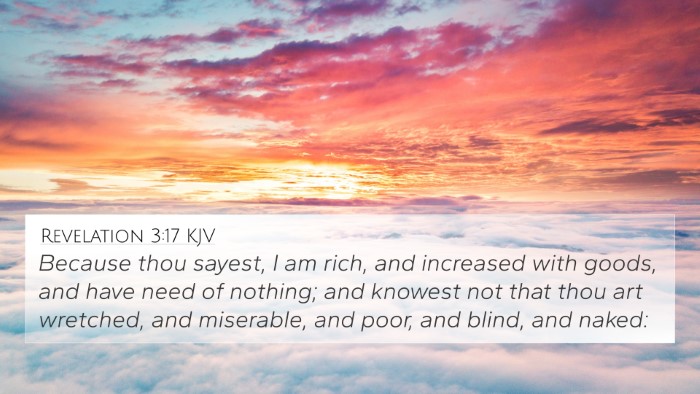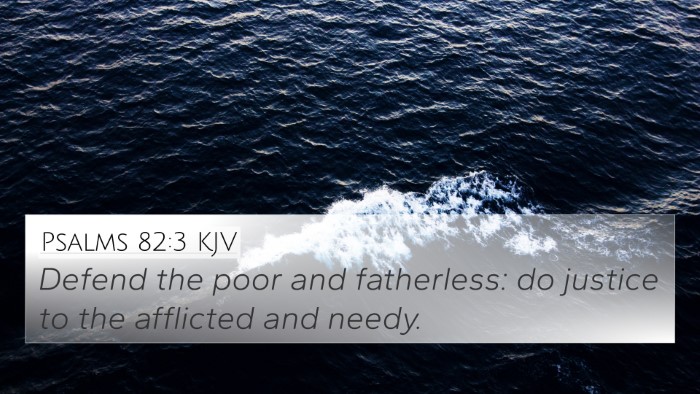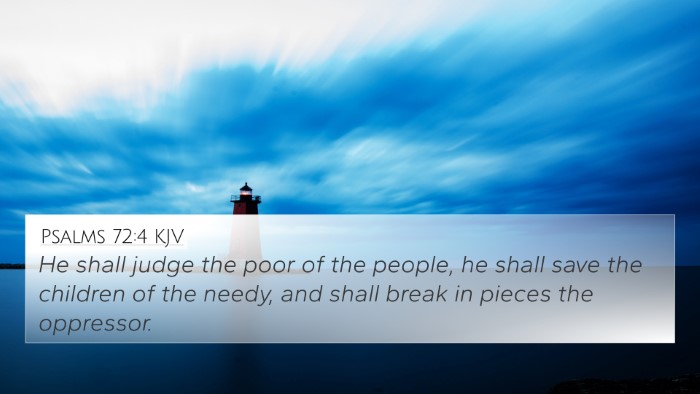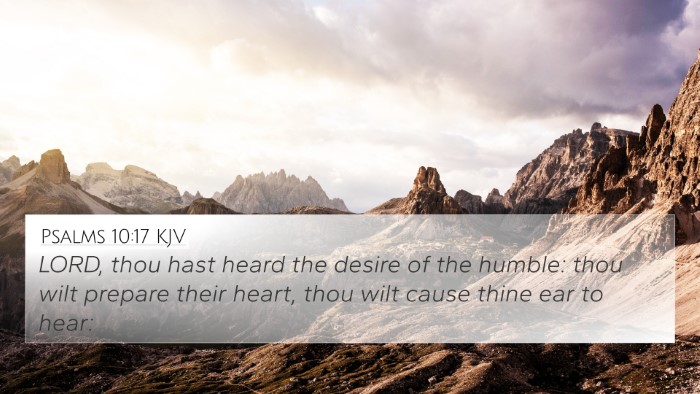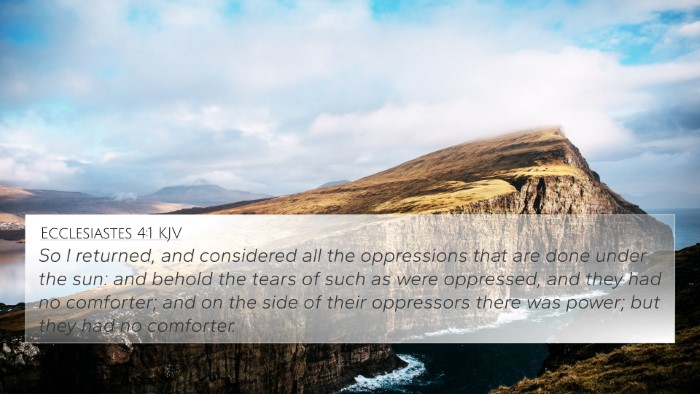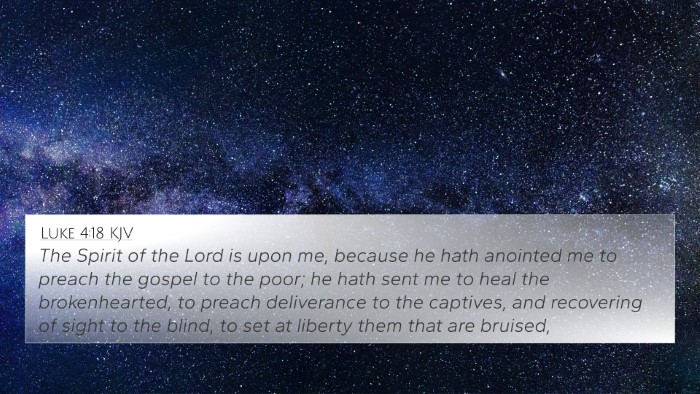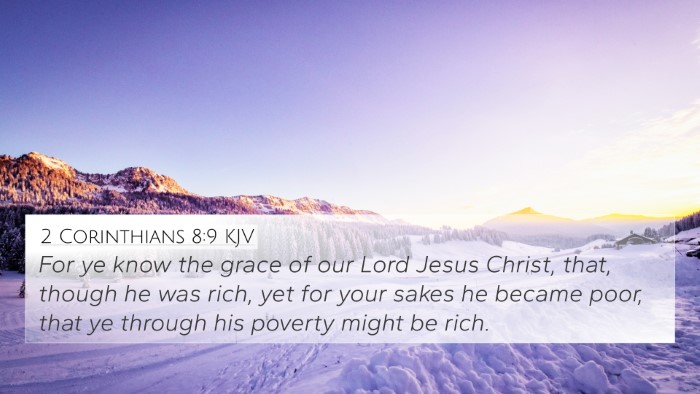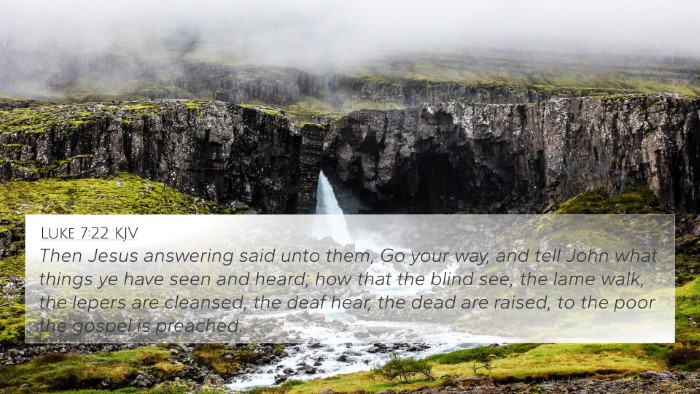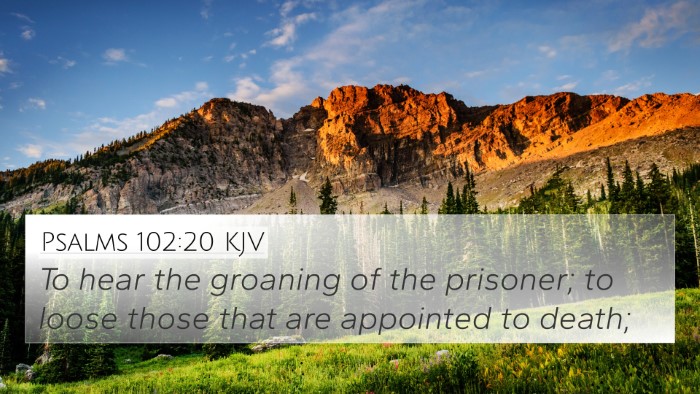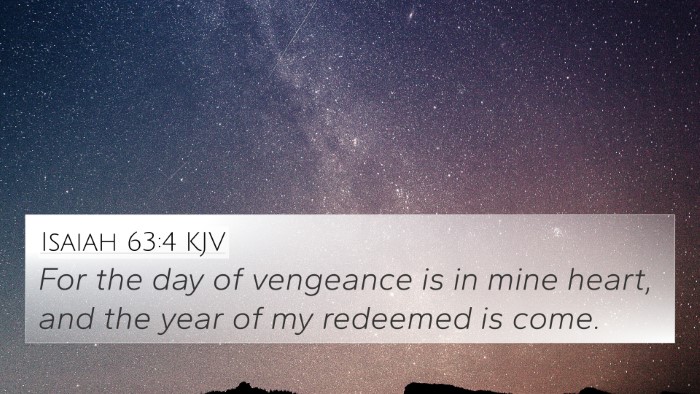Psalms 72:12 - Meaning and Interpretation
Psalms 72:12 reads: "For he shall deliver the needy when he crieth; the poor also, and him that hath no helper." This verse encapsulates a profound promise of deliverance and divine assistance for the vulnerable and oppressed. The interpretation of this verse draws upon the insights of several public domain commentaries, including those of Matthew Henry, Albert Barnes, and Adam Clarke.
Summary of Key Themes
- Divine Deliverance: The verse highlights God's role as a deliverer, ensuring help for those who are in genuine need.
- Belligerent Need: It emphasizes the cry for help that reaches Heaven, illustrating readiness from God to respond to the pleas of the distressed.
- Advocacy for the Poor: The Scripture underscores God's compassion towards the poor and the hopeless, reiterating that no one is overlooked in their struggles.
Interpretive Insights from Commentaries
Matthew Henry's Commentary
Matthew Henry posits that this verse reflects not only the nature of God's justice but also His mercy. He notes that the "needy" refers to those who may not have the means to help themselves, and God’s promise is to deliver them. This reflects a deeper theological theme of God's providence and care for humanity.
Albert Barnes' Commentary
Albert Barnes emphasizes the active role of God in delivering the needy. He points out that God acts when people earnestly cry out for help, demonstrating His readiness to support the helpless. The phrase "him that hath no helper" highlights the isolation often felt by the poor, yet reassures that God stands as their defender.
Adam Clarke's Commentary
Adam Clarke details that this verse signifies hope for all who are in distress. He notes the importance of God’s attention to the downtrodden, signaling a theme prevalent throughout Scripture—that God cares for the marginalized in society.
Cross-References and Related Verses
This verse connects powerfully with several other passages that emphasize similar themes of divine assistance and advocacy:
- Psalms 34:6: "This poor man cried, and the LORD heard him, and saved him out of all his troubles."
- Psalms 140:12: "I know that the LORD will maintain the cause of the afflicted, and the right of the poor."
- Isaiah 41:17: "When the poor and needy seek water, and there is none, and their tongue faileth for thirst, I the LORD will hear them."
- Matthew 5:3: "Blessed are the poor in spirit: for theirs is the kingdom of heaven."
- Luke 4:18: "The Spirit of the Lord is upon me, because he hath anointed me to preach the gospel to the poor."
- James 2:5: "Hearken, my beloved brethren, Hath not God chosen the poor of this world rich in faith, and heirs of the kingdom?"
- Proverbs 14:31: "He that oppresseth the poor reproacheth his Maker: but he that honoreth him hath mercy on the poor."
Thematic Connections in the Bible
This verse is deeply embedded within a theological framework that permeates both the Old and New Testaments. The themes of deliverance, advocacy for the poor, and God's mercy resonate throughout various scriptures:
- Exploration of Bible verse parallels can be observed when comparing the treatment of the marginalized in both testaments.
- Utilizing tools for Bible cross-referencing, believers can trace how God's care for the needy is a consistent thread.
- Bible verses that relate to each other can enhance understanding of God's character as protector and helper.
Practical Applications for Today's Believers
Understanding Psalms 72:12 invites contemporary believers to respond to the needs of the less fortunate. By reflecting on this verse and its implications:
- One can engage in efforts to assist the needy within the community, emphasizing social justice.
- It compels believers to pray fervently for those who struggle and to be instruments of God’s deliverance.
- Incorporating this verse into personal reflection can inspire hope and remind individuals of God’s unwavering support.
Conclusion
Psalms 72:12 serves as a profound reminder of God's faithful promise to deliver the needy and ensure that the poor are not neglected. By engaging with this verse through the lenses provided by traditional commentaries and its thematic interconnections within the Bible, believers can deepen their understanding of God’s character and His expectations for humanity.
Whether through direct application or by using Bible cross-reference guides, this verse illustrates the ongoing inter-Biblical dialogue concerning God's provision for the lost and the broken.
